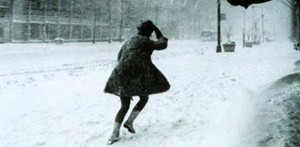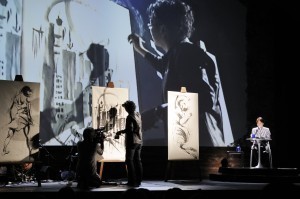Sara Paretsky's Blog, page 16
March 7, 2011
The Power to Destroy
America's first great Chief Justice John Marshall famously wrote, "The power to tax involves the power to destroy." Today, the power to refuse taxes is proving a more potent tool of destruction.
The arts in America cost roughly 29 cents per capita to fund. The arts did not cause our financial meltdown. Yet along with reproductive health, education, and care for the disabled, the arts are the first programs to be cut by the Draconian hands of our right wing congress and state legislatures.
In Kansas, one of the newly-elected governor's first acts was to eliminate the state's entire arts budget, thus saving approximately $522,000. I was in Kansas on March 3rd to receive the Kansas Arts Commission's Distinguished Artist Award. This was a bittersweet evening, since it is the last time the state's Arts Commission will exist, unless the legislature overrides the governor and restores funding. Many people in the state spoke eloquently on what the arts do for their small communities. I left the event awed by the hard work and dedication that people brought to making art possible in places remote from professional theaters, symphonies, or major art museums. A number of people have asked for a copy of my own remarks, and I am attaching them here:
Although Governor Brownbeck boycotted the March 3 Kansas Governor's Arts Award ceremony, people from all over the state came to attest to the importance of arts in their lives and in their communities. I received the state's Distinguished Artist Award; these were my acceptance remarks.
I am proud to stand here tonight as a Kansan, with our long and strong tradition of freedom. Our pioneer forebears brought this state free into the union 150 years ago this winter. We were fortunate in our first governor: one of Charles Robinson's early acts after statehood was to establish the University of Kansas. Coming into statehood after a long and bloody battle over slavery, Sara and Charles Robinson and their friends knew that the difference between slave and free was the difference between literate and ignorant. They knew that an educated citizenry was our best guarantor of continued liberty.
The governor's arts award, given in the spirit of those founders, has high value in my eyes. At the same time, I am sad that this may be the last occasion where Kansas celebrates the arts, because of the governor's decision to end arts funding. It is in this state, in our schools and in our soil, that my own craft was nurtured. It is in this state and in this soil that William Inge and Langston Hughes were reared, the artist Louis Copt, the writer Nancy Pickard. If we end support for the arts, we cut off a lifeline for our citizens.
I recently saw a museum exhibit on the history of writing. I felt a sense of awe as I saw myself, one small person, one small voice, connected to a chain of storytellers that stretches almost 6000 years into the past. The buffalo were roaming widely in eastern Kansas when the ancient Sumerians brought the written word to life. Every poem we read, every equation we solve, sadly, every hate-filled message we post to a blog, we owe to that Sumerian miracle.
Writing probably developed so accountants could keep track of land and livestock ownership, but it quickly became the purview of poets. And it is to poets, to musicians, to artists that we turn when we celebrate our joys or need help in enduring our sorrows.
We are enduring bleak times, indeed, in these United States, and we need the arts today as we never did in our prosperity.
In the aftermath of 9.11, musicians from America's great symphonies went to Ground Zero, where they played through the night to support the hard work of the first responders. No one sifting through rubble for fragments of human bodies wanted to hear someone read an accounts payable list, much less an ideological diatribe. They needed music, they needed poetry.
One of the first acts of totalitarian regimes is to control the arts and the written word. In John Calvin's Geneva, writers who disagreed with Calvin's Protestant vision were burned at the stake. Nazi Germany moved quickly to outlaw, imprison and kill controversial writers and painters. Last year's Nobel laureate in literature, Liu Xiaobo, spent the awards ceremony in a Chinese prison for writing verse that didn't uphold state-sanctioned values.
Here at home, we don't murder or imprison our artists. We starve them. About 275,000 books were published in the United States last year. Despite this vast number, he Wall Street Journal estimates that fewer than a thousand writers earn enough from writing that they don't need a day—or maybe a night—job to support themselves. That's about 2 out of every thousand writers. Most writers earn around $28000 a year.
What do our artists have to say that merits public support? Only a word that sustains life, that sustains hope.
My own most moving moment as a writer came one evening at a reading I'd given in a Chicago library. A group of women stayed after everyone else had left. They told me they were married to steelworkers who'd been out of work for over a decade. These women worked two and three jobs to support their families. They came to hear me read, they said, because my words gave them courage to face the hard hand life had dealt them.
That my work spoke to them in such a way does me more honor than I can rightly express. This art's award is a shorthand for every writer, every storyteller, poet, painter, singer, whose art has helped another person endure the dark night of the soul.
Around 600 BCE, the Spartan poet Sappho wrote, "Although they are only breath/Words, which I command/Are immortal."
We don't today know the names of Sparta's accountants, nor what they had to say about poets and poetry. (We do know the name of Pericles from nearby Athens, not from his spreadsheets, but because he funded some of the greatest art the world has ever known.)
Sappho lived through times as turbulent as our own. Indeed, Governor Robinson founded the publicly-funded University of Kansas in times as turbulent as these, in the wake of the Civil War, the country in ruins, the future uncertain.
What we remember from our recent past, as well as ancient Greece, are not the account books. We don't know the names of the brothers who controlled Greece's fuel and precious metal industries. Nor do we know how many billion drachmas they gave to this or that politician or judge. We remember sculptors. We remember Sappho. For in the end it is poetry, that word which is only breath, that endures.
March 2, 2011
From chapter 30 of the New Book
Jennifer, and anyone else waiting on V I–this is where I've left off as I get ready to go to Kansas to try to urge the governor to restore arts funding:
From Chapter 30 of the book with no name
My dreams were filled with Miles and Iva Wuchnik. Iva climbed onto the catafalque to lie next to her brother. The top of the tomb was so thick with blood that she had to do the backstroke to keep from sinking in it. Iva pulled the rebar from Miles' chest and stuck it in her ear, where it turned into a giant cone for eavesdropping on cellphones. Somewhere in the background I could hear Leydon chanting, In death they were not divided. Wade Lawlor appeared, holding a microphone. Shame on Shame Lunski, he cried, murdering a hard-working vampire.
It was a relief to wake up, to find myself in my bedroom with sunshine seeping around the edges of the blinds, rather than swimming in Miles Wuchnik's blood. I sat in bed, hugging my knees to my chest, trying to remember the important points from my encounter with Iva. I'd been too tired to write them up when I got home last night.
She'd gone on about Chaim Lunski: she saw him on television all the time, she'd said, wanting to fill America with illegal immigrants. I didn't think Lunski was on television—he wasn't a publicity seeker. Iva saw his face or heard his name on Wade Lawlor's show. Miles had been doing some dangerous investigations that would show up Lunski, Iva said. And Lawlor would heap fame and glory on her brother.
I walked slowly to the kitchen to put on water for coffee. Did that mean Lawlor had hired Miles Wuchnik? The two-bit Berwyn PI and the man with the thirty-million-dollar annual contract from Global? Wade Lawlor had hundreds of investigators at his command, but maybe he was spreading his net wide, trying to snare Lunski.
On a whim, I logged onto Lawlor's website, to see if he was offering some kind of reward for nailing Lunski. I didn't see a header that said "Wanted, Dead or Alive," but he did have a tip line.
If you have information on any topic Vital to the Survival of Our Republic and our Christian Values, email me: Wade.Lawlor@GEN.Net
Photos of some of his loyal viewers were shown, with a little blurb about the vital information they'd supplied. Other tipsters hadn't wanted to be publicly identified. As I scrolled down, my own name jumped out at me. An anonymous source had claimed that my mother was an illegal immigrant.
The fury I'd felt at the Herald-Star offices last night welled up in me again. How dared they, how dared they, these faceless, mindless, cowardly, jackboot-licking pond scum? I was shaking with rage, halfway to my closet to collect my gun when I pulled myself together. Who did I think I could shoot? Lawlor? Harold Weekes, the head of GEN's news division? Or just the guts of my computer? Even if I could track down the anonymous tipster, what could I do about it—it wasn't against the law to post messages about someone's dead mother.
A night soon after I'd learned my mother was ill, that she might not get well came to my mind.
One of the women on south Houston whom Gabriella had scorched for her advice on how to control me—your daughter is a disgrace to the neighborhood, the woman had said, and Gabriella had said, she's growing up to inhabit a larger world than you'll ever visit. As I walked past the woman's house she'd spat out an insult about Gabriella, Melez, she'd called her. I'd grown up hearing that Croatian word: my mother was a mongrel, a half-caste—half Jewish, they meant. I'd jumped up the stairs in the dark and been on the point of punching her when my father materialized.
"Come on home, Tory" he'd said.
I was fifteen and as tall as he was, but he picked me up and carried me down the stairs. He didn't berate me and he wouldn't listen to my side of the story. He sat me down on our back stoop, where we'd listened in the darkness to Gabriella working on her breathing exercises: cancer was not going to still her voice, she was determined about that.
After a time, Tony said, "The worst cops are the ones whose gun is their first weapon, instead of their last. The best cops go into a situation head-first, not hand-first. You remember that, Tory: you get yourself into trouble you don't need with that hot temper of yours. And anger doesn't make a bad situation better. It depletes your strength and it depletes your mind."
February 24, 2011
Tweeting VI
Nisha Susan, who had been using "VIWarshawski" as her twitter handle, graciously gave the name to me. You can now follow VI on Twitter.
I loved the suggestions people sent in as alternative handles before Ms. Susan got in touch with me, and I will be sending galleys of the next VI novel to three people for their creative suggestions:
VITweetFighter – Elizabeth Boskey
PitdogWarshawski – Lee Swerdloff
PIVIWarshawski – Cartsmartbaglady
I'm only about halfway through writing the next novel, so your rewards are someways in the distance, but if you will email me (VIWarshawski@mindspring.com) your mailing address, I will make sure you get galleys as soon as they are available.
Thanks to everyone who took part.

February 4, 2011
How to Tweet V I
I was thinking of starting a Twitter account in V I's name, only to find that someone is already using "V I WArshawski." The someone is a woman named Nisha Susan who had a rather brilliant approach to some right-wing Hindus trying to assault women. I'm happy, even flattered, that she wants to tweet in V I's name, but that leaves me with the question of how to set up V I's Twitter identity.
Twitter limits the number of letters in a name–I think it's 24. I can do "VicWarshawski," but I'm not crazy about that, or "TheRealVI"–Warshawski won't fit. Or I can do "VIWarshawski1."
None of these seem quite right to me and I'm waiting for the brilliant suggestion that will bring V I into the 21st Century. If you have the perfect name, you'll go on a list for an ARC of the next V I book, so put on your thinking caps, my cyber friends.

V I doesn't let the blizzard keep her from her appointed rounds
January 13, 2011
Singing in the Snow
Winter blues got you down? I know! Let's put on a show!
Every January for the last hundred years or so, enthusiastic performers from the University of Chicago community have come together to create a comedy revue. It's been my good fortune and a source of high pleasure to take part in the productions for the last six or seven years. Written by the talented Andy Austin-Cohen, with music by Bob Aschenhurst, Julian Harvey, Noel Taylor and other gifted composers, the show is a light-hearted lampoon of university and contemporary life.
This year, I play Oleana Salamander, producer of raunchy reality TV shows and Dan Friedrichs, my cameraman and I, get stuck in Grimy Gulch when our bus breaks down on the way to film "Naughty Nerdettes; Real Chorus-Girl Co-Eds of Las Vegas." The action shifts between the University's Smart Museum of Art and Grimy Gulch. The singing, by the professional Lauren Miller, Trip Driscoll, and Sara Stern is beautiful, and I do my signature dismemberment of someone else's gorgeous music, in this case "L'ho perduta" from Marriage of Figaro. The performance is January 28 and 29 at the University's Quadrangle Club. Tickets are on sale now (773-493-8601) and you definitely do NOT need to be part of the U of C community to attend–so please, come one, come all, have a drink, have a meal from the Q Club's great kitchen, and enjoy the show!

Believe it or not, that's me
January 9, 2011
Arizona Massacre
Yesterday, January 8, as most of you know, a gunman shot U.S. Rep. Gabrielle Giffords in the brain at point-blank range. She is alive but her condition is critical and the prognosis difficult. The assassin murdered a federal judge, a nine-year-old girl, and four other people.
I wanted to write today about some lighter-hearted topic, the Mozart fest on Radio 3, the Vivian Maier exhibit at the Chicago Cultural Center, but my grief, outrage, sense of violation are too great not to mention this latest atrocious set of murders by U.S. citizens on U.S. soil. We started the week with the assassination of a moderate Pakistani governor by one of his bodyguards, with appropriate grave head-shakings over extremism in Muslim countries. But we have our own extremists here, and it's time we said, "enough" to them.
Rep. Giffords had received many threats because of her support of immigrant rights in a state that is setting the standard for intolerance. She also voted for health care reform, which led to further threats on her life. As the New York Times reported on January 9, "Ms. Giffords was also among a group of Democratic House candidates featured on the Web site of Sarah Palin's political action committee with cross hairs over their districts, a fact that disturbed Ms. Giffords at the time." Although Palin has now taken down this map, it was still up and active at the end of the day when Giffords was shot.
The assassin may be, as some news reports assert, mentally unstable, but it is to the mentally unstable that rhetoric like Palin's, or Nevada Republican candidate Sharron Angle, speaks. During her campaign for U.S. Senate, Angle said more than once that it was time for "Second-Amendment remedies" against the Democratic controlled Congress of 2010.
Dr. David Gunn and Dr. George Tiller were both murdered by people who had been stirred by years of violent rhetoric, including "Wanted" posters, and websites that not only urged the doctors' deaths, but gave details of their schedules, their home addresses, and the whereabouts of their wives and children. The purveyors of the websites, and religious leaders who proclaimed the violent rhetoric were never held accountable–we only spoke metaphorically, they said. Not our fault if unstable people took the words literally. Just as in Punjab, where it wasn't the fault of violent religious rhetoric that led one of Governor Salman Taseer's bodyguards to murder him.
When Henry II said of his Archbishop of Canterbury, "Will no one rid me of this meddlesome priest?" (words which, if they were spoken at all, were uttered in Latin or French; the king spoke no English) he was not surprised that his barons took him up on it. And in their heart of hearts, no bishop, Fox commentator, or politician is surprised when John Salvi or Scott Raeder or Jared Loughner uses a gun against the target of their vitriol.
My only hope is that in their secret hearts they are appalled at the effect of their language, not pleased.
January 4, 2011
Are Women Human?
We may be human, but we are not persons under the United States Constitution, according to that militantly anti-female Justice, Anton Scalia. The Fourteenth Amendment defines as "citizens" all persons born in the United States, but Scalia says women are not included in the intent of the text and the amendment does not protect us or our rights.
Here's the text:"All persons born or naturalized in the United States and subject to the jurisdiction thereof, are citizens of the United States and of the State wherein they reside. No State shall make or enforce any law which shall abridge the privileges or immunities of citizens of the United States; nor shall any State deprive any person of life, liberty, or property, without due process of law; nor deny to any person within its jurisdiction the equal protection of the laws."
If we are not persons under this Amendment, we do not have the right to the equal protection of the laws. Period. We are back to where we were thirty years ago when we tried to pass the Equal Rights Amendment, because each state had its own set of laws defining women's rights, or the lack thereof, and Scalia is happy to see us struggle state by state to try to establish our rights.
Scalia's statement foreshadows his decision to back Wal-Mart against the million plus women suing the mega-corp for back pay. It also underscores his frequently articulated opposition to abortion and reproductive rights for women. We aren't persons, we are therefore not citizens with full rights, we are merely the possessors of ovaries and uteri.
I am angry but I also feel helpless. If anyone out there reading this has suggestions for action, PLEASE write in!
January 1, 2011
V I and me on New Year's Eve
I spent six hours today, New Year's Eve, writing and rewriting 600 words. One question I'm often asked is my daily writing quota. I'd love to write 1500 – 2000 words a day, but it's often not possible. Feeling my way into the heads of my characters, getting them to speak as they should, takes time.
In the little scene I wrote today, V I is sitting in the University of Chicago's Rockefeller Chapel

Inside Rockefeller Memorial Chapel
One of her old friends, Leydon Ashford, who suffers from bi-polar disorder, has just fallen from a stone parapets; you can make out on the right side of the photo. The police, the paramedics, and Leydon's angry brother have all come and gone. Here's the text:
The police disappeared, along with the tourists. I didn't know where Sewall went. I sat on the chancel steps, too depleted to think about what I'd witnessed. I found myself singing the alto line of Stravinsky's setting for Psalm 39.
I had been in the chapel choir in my student days. Leydon never came to the service—she despised church services ("Too many Sundays with Jesus after breakfast and 'by-Jesus, young lady, do as I say,' after lunch. The outside of the plate polished so you could see your reflection, the inside full of filth and mire, you know how that goes.")—but she liked to hear me rehearse.
"That's Stravinsky, isn't it?" A man had joined me on the chancel steps without my noticing. "Let me know my end and the number of my days. I've always found that a particularly troubling verse. Would you want that knowledge? It's like reading the Iliad: you want to reach into the text and tell Achilles' mother to stick his whole foot in the river. You see the danger and want to avert it but there's nothing you can do."
If I'd known twenty-five years ago what the end of Leydon's days might look like—that launch from the parapet—what would I have done? Tried harder, probably, to change the ending, but the day would still have come when I would have walked away because Leydon's problems were too difficult for me to handle.
"I'm Henry Knaub, by the way, the chapel dean," my companion said. "The police called to tell me about that unfortunate woman who fell just now. It's like talking to Thetis about Achilles: you can't. Sometimes events have a tragic momentum that you're powerless to halt."
"It's not my nature to be so passive," I said. "I stood by, literally and figuratively. She was up in the balcony in the middle of one of her endless quarrels with her brother. I don't know why I didn't climb up and pull her away, instead of trying to talk her down. It was my calling to her that made her decide to try to fly down to me. The wings of a dove, she said."
The dean nodded. "A group of German tourists were still with the police when I got here. One of them is an American Studies scholar and he said she was quoting from a lot of different sources, the psalms, Puritan sermons, even Joyce."
"Leydon had—has—an elephantine memory. Which can make her riffs hard to follow and, hard to take. I was on her side, always, but I didn't blame her brother for getting wound up. I didn't know she was quoting sermons, or Joyce, for that matter."
"The Germans say she saw someone laid on a catafalque. Portrait of the Artist; they're talking about the death of Parnell." His tone was apologetic, as if he thought I'd be embarrassed at having my ignorance exposed.
"One of the differences between Leydon and me." I smiled painfully. "We both read the book as undergraduates but the language stuck in her head and not in mine."
"Was she delusional? Did she see someone laid out on the communion table here?" the dean asked.
I shook my head. "She thought her brother had sent someone to spy on her. And then she thought I had killed the spy for her. It was all getting extremely—Gordian—in her favorite phrase."
My cellphone buzzed in my hip pocket. I pulled it out—incoming from Max Loewenthal.
"Oh, my God!" I got to my feet. "I'm supposed to be meeting the world's twenty-first richest person. Another thing that didn't stick in my head."
The dean stood with me. "The twenty-first richest person? How odd that they can be counted that way, from top down. I wonder if they know the twenty-first poorest person in the world?"
"I looked up the list this afternoon between meetings. Five of the top fifty are women. I don't know if they could figure out the fifty poorest, but a billion dollars says they're all female."
The dean walked me to the west door. "I'll be praying for your friend. And in return, if number twenty-one is feeling charitable, the chapel can always use a billion or two."
He held out a black leather bag. "I think this might belong to your friend. I put in everything I could find, but if she's missing something let me know; our cleaning crew is very good about turning in all the oddments people drop in church."
Yesterday, when I started work on this passage, V I talked about wanting to stick her hand into the Iliad and get Thetis to put Achilles heel into the river. Actually, when I was a little girl and first heard the story, I was in anguish–it would have been so simple a problem to fix! Yesterday I had V I thinking it, but overnight, it seemed to me more appropriate for the Dean of the Chapel to mention it. Yet now, late in the evening, having revised this section for hours, I'm thinking it's too precious a sentiment, that it doesn't belong in the book at all. By the time the novel is finished, the dean may have disappeared from the story, as Achilles may have done. It takes time, a great deal of time, to see how a story sets, to see when the prose is pretentious, when it's awkward. Even now, after working this over all day, I've had to change some of the text because seeing it up on the blog shows me more infelicities.
Now I'm going to stop changing prose and change myself, into my black Thierry Mugler evening gown, the one I wore to President Clinton's first inaugural, and go out with my husband and two of our friends to ring in the New Year. May 2011 be a year of peace, health and joy for you and all who are dear to you.

My frock looks sort of like this but has long bishop sleeves.
December 24, 2010
Ho, Ho, Ho
As this year winds down, I am grateful for much.
Thanks to everyone who comes to this site. BagLady and Bookwitch and other readers have found new friends here, as have I, too. BagLady is a Dairy Farmer in Canada and Bookwitch is a transplanted Swede living in England, but neither of them has to camp out at Heathrow or St. Pancras to exchange Christmas greetings. It makes me happy to think that V I and I helped make this happen.
I'm grateful to my webmistress, Lisa Hazen, who created this beautiful site, and helps keep it running, responding to my cluelessness, whining and other problems with speed and skill–despite having two very active little boys to contend with!
The economy has taken its toll on our family as on others, with one son laid off the day before Thanksgiving and his wife unable to work, but I feel fortunate that I am in a position to help them through this bad time. Our family situation makes me more aware of the dire straits many find themselves in who don't have resources to help them through, and I've cut back on Christmas shopping to provide more Christmas giving to our local shelters and food pantries.
In the year ending, I experienced the highpoint of my professional career, with the event at the PEN International Congress in Tokyo.

Photo by Teruzou Sugiyama of my presentation in Tokyo
My time with Ms Yamamoto, my translator, was very special, as she hosted an exquisite dinner party in the Ginza, and accompanied me to Kyoto, where she allowed me to lecture at her old university, Doishisha. Through her I met Professor Usui and other interesting women and came home wishing I had some of their energy, their poise and their skills.
The Mystery Writers of America announced that they are awarding me the Grand Master designation at our annual meeting in New York in April, and I feel very honored to stand in the same company as Dorothy Salisbury Davis, Agatha Christie, and Stephen King.
Our beloved dog Callie is suffering from disabling joint problems, but she still has great energy and liveliness of spirit and my happiest hours are spent playing with her.
I'm thankful for the mundane, for delicious coffee, a good espresso machine, hot water, chocolate, fresh running water.
Above all, I am thankful for my friends far and near–Eve, Laura, Joanna, Jo Anne, Kathy, Isabel, Dorothy D, Dorothy G, Laurie, Jean, Henry, Jolynn, Dash, Mike, Ann, Sue, Sally, Margaret, Margot, Miriam, Karl, Andy, Yayoi, Natalie, Pamela, William, Rachel, Jonathan, Martha, Vince, Maude, Simone, Louis, Dante, Dominick, Kerry, Liza…I hope this is the year when we see more, not less of each other
December 20, 2010
Change in Comments Coming
During the last month, I've started getting hit by 200-plus spams a day, so I'm going to have to set up a comment registration policy. I'm sorry to inconvenience all the people who visit the site and leave interesting comments, but the registration seems to be the least inconvenient of all the ways we've explored to minimize spammers–you register once and then you can post any time you visit the site, as opposed to having to copy a security code every time you submit a post.




